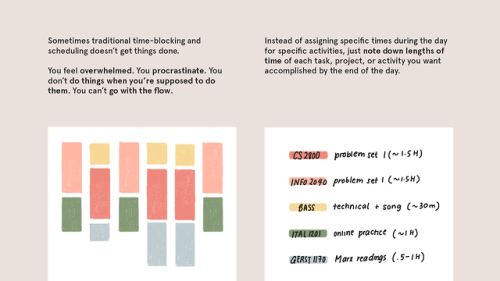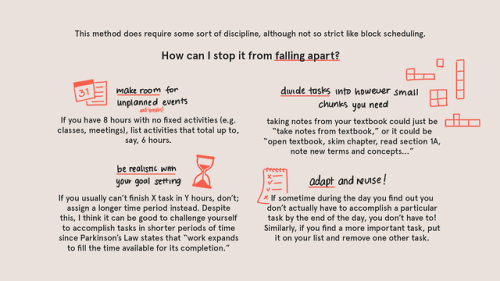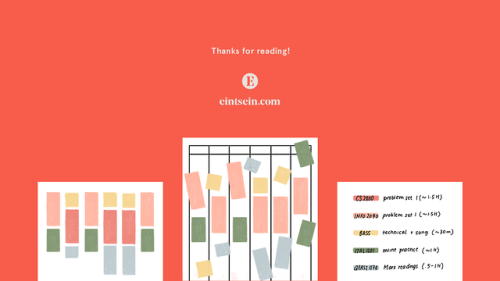US Helplines:


US Helplines:
Depression Hotline: 1-630-482-9696
Suicide Hotline: 1-800-784-8433
LifeLine: 1-800-273-8255
Trevor Project: 1-866-488-7386
Sexuality Support: 1-800-246-7743
Eating Disorders Hotline: 1-847-831-3438
Rape and Sexual Assault: 1-800-656-4673
Grief Support: 1-650-321-5272
Runaway: 1-800-843-5200, 1-800-843-5678, 1-800-621-4000
Exhale: After Abortion Hotline/Pro-Voice: 1-866-4394253
Child Abuse: 1-800-422-4453
UK Helplines:
Samaritans (for any problem): 08457909090 e-mail jo@samaritans.org
Childline (for anyone under 18 with any problem): 08001111
Mind infoline (mental health information): 0300 123 3393 e-mail: info@mind.org.uk
Mind legal advice (for people who need mental-health related legal advice): 0300 466 6463 legal@mind.org.uk
b-eat eating disorder support: 0845 634 14 14 (only open Mon-Fri 10.30am-8.30pm and Saturday 1pm-4.30pm) e-mail: help@b-eat.co.uk
b-eat youthline (for under 25’s with eating disorders): 08456347650 (open Mon-Fri 4.30pm - 8.30pm, Saturday 1pm-4.30pm)
Cruse Bereavement Care: 08444779400 e-mail: helpline@cruse.org.uk
Frank (information and advice on drugs): 0800776600
Drinkline: 0800 9178282
Rape Crisis England & Wales: 0808 802 9999 1(open 2 - 2.30pm 7 - 9.30pm) e-mail info@rapecrisis.org.uk
Rape Crisis Scotland: 08088 01 03 02 every day, 6pm to midnight
India Self Harm Hotline: 00 08001006614
India Suicide Helpline: 022-27546669
Kids Help Phone (Canada): 1-800-668-6868
FREE 24/7 suicide hotlines:
Argentina: 54-0223-493-0430
Australia: 13-11-14
Austria: 01-713-3374
Barbados: 429-9999
Belgium: 106
Botswana: 391-1270
Brazil: 21-233-9191
China: 852-2382-0000
(Hong Kong: 2389-2222)
Costa Rica: 606-253-5439
Croatia: 01-4833-888
Cyprus: 357-77-77-72-67
Czech Republic: 222-580-697, 476-701-908
Denmark: 70-201-201
Egypt: 762-1602
Estonia: 6-558-088
Finland: 040-5032199
France: 01-45-39-4000
Germany: 0800-181-0721
Greece: 1018
Guatemala: 502-234-1239
Holland: 0900-0767
Honduras: 504-237-3623
Hungary: 06-80-820-111
Iceland: 44-0-8457-90-90-90
Israel: 09-8892333
Italy: 06-705-4444
Japan: 3-5286-9090
Latvia: 6722-2922, 2772-2292
Malaysia: 03-756-8144
(Singapore: 1-800-221-4444)
Mexico: 525-510-2550
Netherlands: 0900-0767
New Zealand: 4-473-9739
New Guinea: 675-326-0011
Nicaragua: 505-268-6171
Norway: 47-815-33-300
Philippines: 02-896-9191
Poland: 52-70-000
Portugal: 239-72-10-10
Russia: 8-20-222-82-10
Spain: 91-459-00-50
South Africa: 0861-322-322
South Korea: 2-715-8600
Sweden: 031-711-2400
Switzerland: 143
Taiwan: 0800-788-995
Thailand: 02-249-9977
Trinidad and Tobago: 868-645-2800
Ukraine: 0487-327715
(Source)
More Posts from Plantsandstudy and Others
General School Tips
Stay organized.
Organization is hard for some and easy for others. I recommend having a planner of some sort, a folder, and pencil case, and some sort of system to stay organized.
Have a planner.
You can use any type of planner. I Personally use a Bullet Journal style system in a dotted journal. But you can use a pre printed planner, your phone, a printable or some other form of planner, its up to you. Just have one and use it, write due dates, test/quiz dates, birthdays, holidays, and even your daily tasks. I wrote my work i got in class down as soon as i got it and if i finished it i crossed it out. I would write down websites and little notes to not forget things also. A place to put all of those random thoughts you have can reduce stress
Turn things in on time.
This one seems like common sense but I will still address it because I personally know people who never turned things in and still expected the teacher to pass them. You cannot get a grade with out turning things in. If your teachers is fine with you turning it in late than turn it it. Anything is better than a zero in the grade book.
Ask questions.
I get it, you think your smart enough or good enough or even afraid to ask questions. But teachers are paid to do just that. Their job is to teach you so if you are having trouble with something ask. Also don’t be afraid to ask a question during class. Raise your hand and ask, someone else may have a similar question, it will make the teachers life easier.
Take breaks.
If you find yourself feeling stressed or overwhelmed, take a break. If you’re at home stand up and walk around, get a drink or something to snack on. Get some air. If you are in class ask to go to the bathroom or to get some water. If you cant leave the room then stretch your arms in front or above you and take some breaths. I found that if I couldn’t focus or was stressed that mindless doodling on a blank page for a bit helped.
Find a study style.
There are many ways to study. Reading over notes/books, rewriting notes, condensing info onto flash cards, quizlet, or using memory tricks. Just find one that suits your life and try different ones out. Personally I like rewriting my notes when I have the time or I will condense my notes onto a flash card using an erasable pen. The ink erased with heat so I would have a candle on my desk and waved the card over it to erase. I would do this while writing the info over and over again until I memorized it.
Write your info on your stuff.
If you are prone to leaving things around like I am, write your name, the class, the teacher, the period and the room of the class. If you have a water bottle or something not for a class just put your name and maybe a way to contact you.
Carry a water bottle.
I would highly recommend you have a bottle, just make sure it follows your schools policies.
Have just in case stuff.
When I say just in case I mean things like pain relief, allergy medicine, deodorant, maybe some cough drops, and if you have a period, some spare products. Just have things you may need.
#96: Experiments

I wrote this post for myself as much as I wrote it for you.
You have an idea for a short story. It starts small, a random, sudden jolt of inspiration. Over time, other ideas latch on to it, big and small. Slowly but surely it expands into something bigger, and you start paying attention. It stays close, at the back of your mind at all times, and you pick the thread up whenever you have a spare moment.
Even more time passes, and you realise that the idea is so big that you can’t keep it inside your head anymore. So you pick up your notebook and dump all your thoughts under the heading initial notes.
You’re excited about it and want to explore it further. Things seem to be getting pretty serious. If you do it right, this could get really big. Not a short story but a novel for sure, perhaps even a trilogy. Now you have to be careful and really think about it.
And you do. More unsorted notes start piling up until you’re pretty sure this will be at least an eight-book series with the possibility of spinning it off into a fantasy empire not unlike the Discworld series by Terry Pratchett.
At this point, you’ve been racking your brain on this for months, but all you have is an idea. A pretty epic idea, but still, only an idea. You don’t know if the story’s going to work and have no idea whether you’ll actually enjoy writing something like this. This has happened to me many more times that I’m willing to admit, and most of them remain mere ideas to this day.
I often wonder: why not do it the other way around? When the initial jolt of inspiration comes, why not harness it? Why not sit down and write whatever story comes out in however much time you have without thinking about it? Just a little experiment.
Writing scenes with those characters that just appeared in your mind puts things in perspective. It gives you an idea of how much research and other related work you would have to do. Writing even a short experimental scene doesn’t spoil the idea. It puts it to the test.
As writers of fiction, we have the luxury of being able to try things out with almost zero cost. A surgeon or barrister or firefighter can’t turn up for work with a wild new idea and immediately put it into practice. That would be dangerous.
Unlike all these responsible people, you can write out whatever comes to mind as crazy and half-arsed it might be. In case that fails, you can always just delete it or tear it up or burn it or take it to Nevada and nuke it in the desert (stay safe, though).
You can abandon it if you don’t like it or change it in the middle. There are no rules. Even if it turns out well, you have no obligation to publish the exploratory story. You can rewrite it as a novel and/or incorporate it into a larger body of work.
If you write just a few hundred or thousand words towards a story, you have a much better idea if it’s going to work than a person who spent months just thinking about it. There’s nothing to lose.
Think less. Do more experiments.
What I Am Reading
This week, I finished Blind Willow, Sleeping Woman — a collection of short stories by Haruki Murakami. It was a fantastic read. I have to admit, I’m becoming a massive fan of his style. I’ll have to read more Murakami in the future.
Short Stories
I read the following short stories this week:
Firefly by Haruki Murakami
Chance Traveller by Haruki Murakami
Hanalei Bay by Haruki Murakami
Where I’m Likely to Find It by Haruki Murakami
The Kidney-Shaped Stone That Moves Every Day by Haruki Murakami
A Shinagawa Monkey by Haruki Murakami
Divorce by Tita Chico
Want More?
My email subscribers receive a notification when I publish these posts along with a few things I found interesting or helpful on the literary internet every week. Click the link below to join the club.
SUBSCRIBE
(I won’t spam you or pass your email to a third party. You can unsubscribe at any time.)
Past Editions
#95: Project Fatigue, June 2019
#94: Writers and Jobs, June 2019
#93: Time Tracking for Writers, June 2019
#92: Decisive Moments, May 2019
#91: Writing and Life, May 2019
Skipping Lectures: How to ditch class and get good grades

Studitonious loves 8am lectures. Every day he cartwheels to class, radiant with the joy of acquiring new knowledge. Morning coffee? Ha! That’s for uncultured plebeians. He has no need for caffeine when he has his daily shot of morning eDUCATION!!!
Here’s the thing - Studitonious doesn’t exist. Or if he does, he needs to get some serious help. Yet, there seems to be a common misconception that a “perfect student” must emulate this model.
Getting up at the crack of dawn? Well, you don’t need to get up if you never go to sleep… #lifehacks. Oh, there’s a blizzard outside? No biggie, the cold never bothered me anyway. Everything is worth it because getting good grades is all. so. wonderful. Right?
Well, here’s a thought. What if you don’t have to attend all your lectures to get good grades? What if instead of forcing study habits that work against us, we develop flexible routines that work for us? What if we began studying smarter, not harder?

Let’s get one thing straight - not all lectures are created equal. There’s a big difference between ditching class to binge your latest Netflix obsession vs. ditching class because it’s counterproductive to your learning. Here are a few factors to consider:
Is attendance compulsory?
Does participation contribute to your grade? Do you have any in-lecture assessments?
If the answer is “yes”, then go to your lecture. The mark may only be worth 5%, but would you rather have 5% added or deducted from your grade?
Are your lectures recorded?
At my university, all lectures are automatically recorded due to Access & Inclusion policies but this isn’t the case across the board.
If there’s any lecture-exclusive content (i.e. content discussed in lectures but not in the slides, group activities etc.) and your lectures are not recorded it’s a good idea to attend.
Is the content actually helpful?
Does the lecture aid your learning in a way that other mediums (reading lecture slides/the textbook, attending tutorials/labs etc.) do not? For instance, if your lecturer just reads off the slides, you can save time by looking at them yourself.
Is your subject more “hands-on”? For courses that are more heavily based on solving problems, I often find doing the problems myself way more helpful than watching my lecturer solve them.
How dense is the content of each lecture? Sometimes, there is simply too much to absorb in the given time slot. E.g. I once had a flipped class that had a brief 1-hour intro lecture to a week’s worth of content. Since it just briefly skimmed over everything, it was more worthwhile to study the concepts in detail myself.
Do you actually pay attention to the lecture?
Are you actually awake? I once had a friend tell me he attended all his 8am lectures despite always falling asleep because he “just felt like he should”. Bro, sleep.
How engaging is the lecturer? Obviously, you shouldn’t skip a class just because the lecturer is “boring” but there is a certain point where the line is crossed. In first year, one of my professors took long pauses between every second word and spoke very s l o w l y. Needless to say, he was much easier to listen to at 2x speed.
Note: there is a significant difference between a bad lecturer and just being distracted. If it’s your meme addiction, not the quality of your lecturer that’s making you lose focus, turn off your phone.
Other factors to consider:
Do you have any other commitments (e.g. other courses, work etc.) at the same time? While it would be nice to try and re-arrange your schedule sometimes things just don’t work out.
Are you sick? If you’re feeling rough mentally or physically, you should consider taking a day off.

Ok, so you’ve decided that you’re better off not attending your lecture but what should you actually do instead? How do you deal with this newfound flexibility and freedom?
Develop a study routine (and stick with it)
The key to skipping class successfully is just doing consistent work. If your lecture is 2 hours long, pencil in a 2-hour study session.
It’s important to maintain a sense of regularity and routine. Treat your study sessions like a compulsory class - do them at the same time each week. It may even help to study at the intended lecture time.
The most common pitfall is to go “Oh it’s easy, I’ll just skip my lecture and do xyz instead”… but never do xyz.
Identify the lecture’s problems and provide solutions
Why exactly did you decide to skip your lecture? How are you going to make your independent study more effective? If you don’t do something more useful with this “free time”, you’re just wasting it. Be specific.
Here are a few examples:
Problem: Lecturer speaks too slowly. Solution: Watch the lecture recordings at a faster speed.
Problem: Lecturer just reads off the slides, providing no new content. Solution: Read the slides yourself, making your own notes and saving yourself time.
Problem: The lecture is too theoretical in comparison to the assessment scheme. Solution: Do more practice problems instead of just going over abstract concepts.
Find a study group
Having friends who take the same course can honestly make the experience so much better.
It can also help increase accountability. For instance, you would probably feel more guilty ditching a group vs. solo study session.
However, this can be a double-edged sword. Sometimes my “study sessions” with friends will just dissolve into us looking at memes for hours. Make sure you’re actually going to study!
Banter is great, but remember when to have fun, and when you need to focus and get shit done.
The person I reblogged this from deserves to be happy
I tried to scroll past this. I really did






Flexible Time Blocking: A More Breathable Way to Get Things Done
I’ve met a lot of people who struggle with sticking to a schedule - myself included - so here’s one way you can get things done without restricting your spontaneity.
Linked: The ABCDE Method: Accomplish Tasks More Efficiently
Hope this helps!

The person I reblogged this from deserves to be happy
I tried to scroll past this. I really did
Unpopular truths you should keep in mind!
While most of the studyblr community is really empowering, uplifting and inspiring, there are also ideals and misconceptions that are really harmful, so please always keep in mind:
You don´t need straight A´s. In some subjects, or basically in life, passing is sometimes enough. Don´t expect yourself to get only straight A´s and destroy yourself for these grades.
Your health, physical and mental, is more important than your grades.
Not everyone enjoys studying. Some studyblrs may be there because they try to motivate themselves, not because they love studying.
You don´t need expensive stationery. Cheap ones are more than enough.
You don´t need to wish for stationary for christmas or your birthday. Wish for something your really want and what brings you joy.
Staying up all night and having only 4 hours of sleep is not healthy!
Drinking multiple coffees per day every day is very bad for your stomach and heart!
Being productive can mean lots of things. It means something different for everyone, and while for some of us it means studying 8 hours a day, for others it may mean 2 hours, or maybe just organizing and sorting out stuff.
Not every day is the same. While today may be wonderful and productive, tomorrow may be not so productive. You are a human being, not a machine.
Honestly, being 100 days in a row productive is more harmful than helpful. Take that day off if you need too!
Your bullet journal must not be perfect or artsy. As long as it helps you organize your stuff and as long as you are happy with it, everything is fine!
You don´t need to do calligraphy to be a studyblr or a good student.
You don´t need to rewrite all your notes. As long as you know how to learn from them, that is enough.
Your handwriting doesn´t need to beautiful. You (and your teachers) should be able to read it without problems, that´s all.
Studying too much can make you depressed. But that is normal and will pass.
Just because others may find a class easy does not mean you have to. Everyone has weaknesses and strengths.
Ambience and piano music is not for everyone. It is totally okay if you listen to heavy metal while studying, as long as you can concentrate.
Getting up early is not always good for being productive. If you are not a morning person, you might not be able to concentrate.
Your background does not have to be white.
You do not have to study on your bed or wrapped in blankets. There are enough people who get tired by doing so.
Your desk will be messy more often than not, and that is totally okay.
Everyone is procrastinating sometimes.
Planning your whole day or week, including every single minute, does not make sense. You will have moments where you will just sit there and stare, you may want to eat an unplanned snack or whatever. Don´t try to plan every second. Give yourself some freedom.
Enjoy your breaks. Don´t minimize them down to just 5 minutes. Take breaks as long as you need them to be in order to feel well and to focus again.
Don´t revise in your head as soon as you´re not studying. Give yourself times where you don´t think about it at all.
You don´t have to revise on your way to school. There are many other productive things you can do, even if it is only waking up and mentally prepairing yourself for the day.
so your last semester wasn’t great.
we’ve all been there fam. in fact my previous semester was not great either – i got kicked out of my university’s honor program. You need a 3.5 cumulative GPA to stay in, and because of a lot of different circumstances, I finished out with a 3.48 – which is, frankly, better than i deserved. But this semester I’m gonna get a 4.0 and reapply. So here’s how ya do it.
1. have a good first day.
a big mistake is to go balls-to-the-wall discipline on your first day. Fuckin… relax, dude. Wake up as early as you need to be ready, but don’t push yourself to be up at 5am or anything like that. Set our your stuff the night before so you can have an easy morning. Treat yourself to a good breakfast or just get that fast food you’ve been craving for lunch. It’s really important not to stress yourself out too much, especially after your last semester kinda sucked, and it’s VERY important not to let yourself automatically associate school with negative emotions like fear and stress, because that will paralyze you down the line when things get more difficult closer to exam season, etc.
2. don’t be afraid to drop
when going to all your new classes, really seriously evaluate your ability to succeed in a class with that time slot/professor/etc. last semester I had a quantitative reasoning class that was part of our core curriculum – the professor was NOT good at their job, did not teach us the material, and frankly showing up to that class was a waste of my time. What i SHOULD have done was DROP THE DAMN CLASS the first week, and taken it the next semester with a better professor.
3. limit other activities at first
your first couple weeks of the new semester, cut back on other activities. I’m really active in political stuff going on around my city, and i’m on a leadership team for an organization that does that kind of stuff. I’ve let the team know that I’m not going to be participating, going to meetings, or ANYTHING for the next two weeks while my semester gets started. The reasons for this are many – it helps you get used to the pace of all your classes without being stressed out by other things, it helps you reorganize your priorities and put school first, and it also helps you build credit with your professors, so down the line if you’re having problems (like ‘oh SHIT i forgot this homework’ or ‘FUCK i don’t understand this project i need an extension’) they’ll be more likely to help you out, because they know you’ve been putting the effort in.
4. try out something new organizationally
if you’re like me, keeping track of assignments is really difficult. I lose papers all the damn time. So this semester I’ve bought one of those accordion file thingies – so I can keep all my papers in one place, while still having them separate and organized. Just remember, the strategy is only one part, but you’re responsible for sticking to it and making it work.
so there ya have it, friends. you’re ready to start this ‘recovery semester’ off with a bang. you can do it, and so can I!
somehow I got 95/20 on an assignment

I hope they never fix it and leave it this way forever
-
 sparkzx3 reblogged this · 1 week ago
sparkzx3 reblogged this · 1 week ago -
 just-call-me-jackson liked this · 1 week ago
just-call-me-jackson liked this · 1 week ago -
 aoneringo liked this · 1 week ago
aoneringo liked this · 1 week ago -
 humble-introvert0808 reblogged this · 1 week ago
humble-introvert0808 reblogged this · 1 week ago -
 humble-introvert0808 liked this · 1 week ago
humble-introvert0808 liked this · 1 week ago -
 soul-strings reblogged this · 1 week ago
soul-strings reblogged this · 1 week ago -
 the-athena-mysteries-castle reblogged this · 1 week ago
the-athena-mysteries-castle reblogged this · 1 week ago -
 imconfusedbutok liked this · 1 week ago
imconfusedbutok liked this · 1 week ago -
 evthescribbleguy reblogged this · 1 week ago
evthescribbleguy reblogged this · 1 week ago -
 evthescribbleguy liked this · 1 week ago
evthescribbleguy liked this · 1 week ago -
 multifandomaroace reblogged this · 1 week ago
multifandomaroace reblogged this · 1 week ago -
 tired-eel reblogged this · 1 week ago
tired-eel reblogged this · 1 week ago -
 tired-eel liked this · 1 week ago
tired-eel liked this · 1 week ago -
 becausewearesoftpeople reblogged this · 1 week ago
becausewearesoftpeople reblogged this · 1 week ago -
 becausewearesoftpeople liked this · 1 week ago
becausewearesoftpeople liked this · 1 week ago -
 kitkhat reblogged this · 1 week ago
kitkhat reblogged this · 1 week ago -
 aspenindatree reblogged this · 1 week ago
aspenindatree reblogged this · 1 week ago -
 aspenindatree liked this · 1 week ago
aspenindatree liked this · 1 week ago -
 yourfavvvintj liked this · 1 week ago
yourfavvvintj liked this · 1 week ago -
 yesidolikered reblogged this · 1 week ago
yesidolikered reblogged this · 1 week ago -
 yesidolikered liked this · 1 week ago
yesidolikered liked this · 1 week ago -
 umm-the-thing liked this · 1 week ago
umm-the-thing liked this · 1 week ago -
 opaquelavender liked this · 1 week ago
opaquelavender liked this · 1 week ago -
 littlechaoscryptid reblogged this · 1 week ago
littlechaoscryptid reblogged this · 1 week ago -
 emerald--antssss reblogged this · 1 week ago
emerald--antssss reblogged this · 1 week ago -
 emerald--antssss liked this · 1 week ago
emerald--antssss liked this · 1 week ago -
 caretaleandotherstuff reblogged this · 1 week ago
caretaleandotherstuff reblogged this · 1 week ago -
 reinafish reblogged this · 1 week ago
reinafish reblogged this · 1 week ago -
 trauma-official reblogged this · 1 week ago
trauma-official reblogged this · 1 week ago -
 punk-rat-king reblogged this · 1 week ago
punk-rat-king reblogged this · 1 week ago -
 xx-disco-inferno-xx liked this · 1 week ago
xx-disco-inferno-xx liked this · 1 week ago -
 sizzlinggladiatoryouth reblogged this · 1 week ago
sizzlinggladiatoryouth reblogged this · 1 week ago -
 sonicschilidogs2 reblogged this · 1 week ago
sonicschilidogs2 reblogged this · 1 week ago -
 rachelwattsart liked this · 1 week ago
rachelwattsart liked this · 1 week ago -
 cat-dragron reblogged this · 1 week ago
cat-dragron reblogged this · 1 week ago -
 karma-creations reblogged this · 1 week ago
karma-creations reblogged this · 1 week ago -
 funkyfandomlover reblogged this · 1 week ago
funkyfandomlover reblogged this · 1 week ago -
 kittysofie04 liked this · 1 week ago
kittysofie04 liked this · 1 week ago -
 somemismatchedsocks reblogged this · 1 week ago
somemismatchedsocks reblogged this · 1 week ago -
 somemismatchedsocks liked this · 1 week ago
somemismatchedsocks liked this · 1 week ago -
 queenofgravyfries reblogged this · 1 week ago
queenofgravyfries reblogged this · 1 week ago -
 theyellowotter reblogged this · 1 week ago
theyellowotter reblogged this · 1 week ago -
 nutzo0001 reblogged this · 1 week ago
nutzo0001 reblogged this · 1 week ago -
 nutzo0001 liked this · 1 week ago
nutzo0001 liked this · 1 week ago -
 e3m5-inhabitant liked this · 1 week ago
e3m5-inhabitant liked this · 1 week ago -
 thestorieswesay liked this · 1 week ago
thestorieswesay liked this · 1 week ago -
 thestorieswesay reblogged this · 1 week ago
thestorieswesay reblogged this · 1 week ago -
 myuoee liked this · 1 week ago
myuoee liked this · 1 week ago -
 beankibble reblogged this · 1 week ago
beankibble reblogged this · 1 week ago -
 easyaseb reblogged this · 1 week ago
easyaseb reblogged this · 1 week ago
